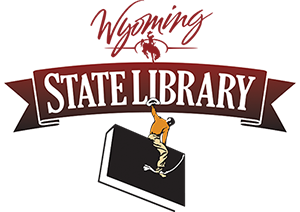 From the Idaho Commission for Libraries
From the Idaho Commission for Libraries
By Jeannie Standal, ICFL School Library Consultant
September 2021 saw a 60% increase in reported book challenges in the United States over September 2020. Even taking the circumstances of the pandemic in September 2020 vs. September 2021 into account, that is a huge increase. If your school library has not yet dealt with a book challenge, there is a good chance one is coming your way. It can feel like a disaster, but much like any other crisis, preparation eases the way.
Foundational pieces
The first and most important priority is to make sure your school and school district have critical foundational pieces in place. If your school district does not have robust versions of the following policies in place, move those to the top of the priority list and ask your administration to do the same.
- A collection development policy lays out the purpose, goals, and priorities for the library’s collection in support of the school library’s mission which, in turn, supports the school’s mission. Library collections might include print books, recordings, digital materials, periodicals and newspapers, and even equipment. The collection development policy should cover all of those and any other items in the library. The ICfL uses this simple Collection Development Policy for the IDEA Collection.
- A challenge policy or reconsideration policy and procedure is part of a collection development policy. It clearly establishes a policy and a procedure with which a book or other item is examined to determine if it should remain in the collection. The American Library Association (ALA) provides a Reconsideration Policy Toolkit to help librarians and administrators develop policies that will suit their libraries.
- A challenge procedure always includes review by a reconsideration or review committee. This committee commonly includes the librarian, members of the faculty, at least one member of school administration, and at least one parent. Some committees include members of the community like the local public librarian, a member of the PTA/PTO, and possibly a school board member. It should not include the party submitting the challenge. Learn more about the role of the reconsideration committee.
More things to consider
Recruit and establish the review committee before a challenge happens. They should be very familiar with the role and purpose of the library, and the review committee members should establish internal relationships and trust within the committee before the work of a challenge begins. That anchoring knowledge and respect for fellow committee members will help them come to a sound decision regarding any challenged material.
Got those in place? Awesome! But that’s not all. It’s important to be familiar with the books that are most likely to be the target of a challenge. Keep an eye on the trends in book challenges and read this helpful article from school librarian Martha Hickson published in the Office for Intellectual Freedom’s Blog. It has some great tips on being ready should a challenge come your way.
If someone is concerned, but has not yet submitted a formal challenge, it’s a good opportunity to talk about their concerns (this is where knowledge of the book comes in handy). Be open to their comments and concerns and acknowledge that while the principles of students’ freedom to read, listen, and view are important considerations, parents have the right to monitor and guide what their own children read. However, this is not the time to make any promises about the fate of the title in question. Often a conversation where the concerned party is heard and understood will resolve the problem, but if not, point them to the reconsideration procedure with a recommendation that they read the entire work before submitting the complaint so they may consider their concerns with the benefit of context.
It is natural to want to avoid trouble, but top of mind should be the purpose and mission of the school library. School librarians maintain a collection to serve and represent a diverse student body with a wide variety of needs and interests. They provide “windows and mirrors” and help students find stories about people that are both like themselves and nothing at all like themselves, in settings and situations that are both familiar and different. They ensure students have access to a large variety of points of view, rather than stories and histories written by and about a single point of view. They employ sound principles of selection rather than preemptive self-censorship.
A few additional resources:
Blog Post: A Proactive Approach to Book Challenges by Jennifer LaGarde from the Adventures of Library Girl blog, which includes a concise and helpful infographic.
Document: Instructional Materials Conversation Guide for Principals (and for librarians) from the Beaverton School District.
Foundational Document: Library Bill of Rights
NCTE’s Position Statement: The Students’ Right to Read
